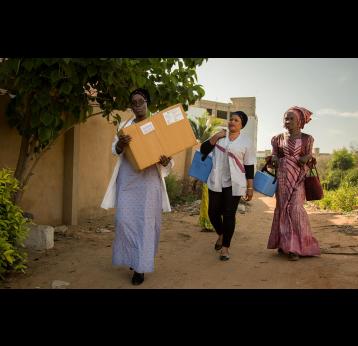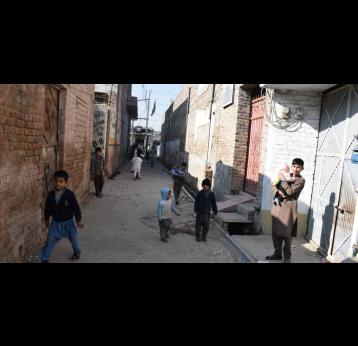This report presents the main findings from an evaluation of Gavi’s support to civil society organisations (CSOs) during the period 2011 to 2017. The evaluation was conducted by Itad in 2018.
The evaluation assesses the overall relevance, efficiency, effectiveness and sustainability of the Gavi CSO Platform model as well as of Gavi’s support to CSOs through country Health System Strengthening (HSS) grants - jointly referred to as the “Gavi CSO Model”.1
The primary purpose of the evaluation is learning and the evaluation findings and recommendations are informing decisions on how Gavi engages with CSOs during the current as well as the next Gavi Strategy. The evaluation also provides evidence on the degree to which Gavi’s support to CSOs has been efficient and effective, which is critical to guide Gavi’s future approach to engaging with CSOs in a manner that best contributes to the Gavi mission.
APPROACH METHODS
This evaluation is utilisation-focused and theory-based. A mixed methods approach to data collection was employed during the evaluation, leading to a synthesis and reporting phase that focused on systematically validating the findings and co-creating conclusions and recommendations with the stakeholders and primary evaluation users.
Itad used a mix of quantitative and qualitative methods in the evaluation, including:
- A desk review of relevant documents regarding Gavi’s CSO support
- Key informant in-depth interviews at global, regional and country levels
- Country case studies in eight countries2 (including country visits in five countries)
- Quantitative data analysis
- A Theory of Change validation workshop
- A recommendations co-creation workshop with primary users of the evaluation
Evaluation documents
MAIN FINDINGS
The evaluation has three work streams:
- CSO governance and management arrangements
- Regional and country processes and implementation
- Outcomes and sustainability
The main findings in the respective areas include:
|
1. CSO GOVERNANCE |
|
|
2. REGIONAL AND COUNTRY PROCESSES AND IMPLEMENTATION |
|
|
3. OUTCOMES AND SUSTAINABILITY |
|
1 It is acknowledged that this support is only a subset of Gavi’s work with CSOs and that other components of Gavi’s engagement with CSOs were not included within the scope of the evaluation.
2 Burkina Faso, Ghana, Guinea, Kenya and Pakistan with remote case studies in Chad, Liberia and Mali.
Related content
Civil society organisation support
Civil society organisations play a crucial role in strengthening health systems and delivering immunisation services in some of the poorest regions of the world

.jpg_GMB-Akash-13733_h2.jpg?itok=fDnBH9pN)

